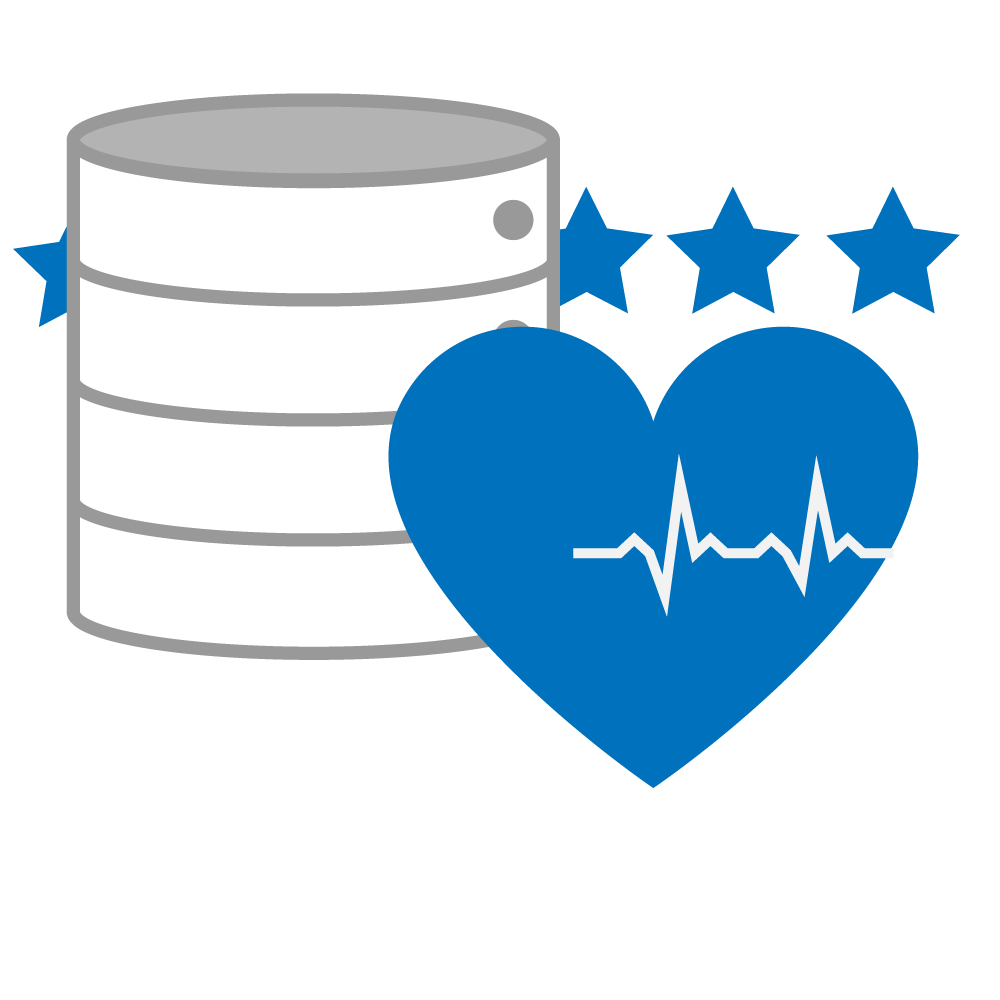Psychodiagnostics, Digital Phenotyping and Smart Sensing
The reliable and valid recording of mental health indicators and predictors is of central importance for diagnostics, therapy planning and therapy process evaluation. Research projects of the Department are related to the implementation of psychodiagnostic routines and the development and evaluation of innovative technology-based diagnostic procedures, such as Computer Adaptive Tests (CAT) based on item-response theory models or smartphone-based sensing and ecological momentary assessments (Smart Sensing and EMA). In this context, the term digital phenotyping stands for the Department´s efforts to improve personalized diagnostics and treatments. The integration of digital data sources from hospital information systems (HIS), web-based patient reported outcome (PROs) systems as well as passively collected smart sensing data, allows for disorder/disease specific prediction models using data science approaches (machine learning / deep learning). Deliverables comprise applications such as AI-based psychodiagnostic test systems and "intelligent" interventions (e.g. just-in-time interventions; chatbots).
![[Translate to english:] pexels.com](/fileadmin/website_uni_ulm/iui.inst.160/Psychologie/Klin_Psychologie_und_Psychotherapie/Bilder/Pexels.com_apple-business-click-392018.jpg)
Web-based test systems, Computer-Adaptive Testing (CAT), RehaCAT and Item-Response-Theory
A comprehensive psychodiagnostic process should be the subject of every treatment planning in mental and behavioural health. The non-standardized clinical interview has long been recognized as an unreliable source for decision making. Patient-reported outcomes (PROs), recorded using self-assessment scales, provide an economical and potentially reliable and valid basis for the assessment of PROs. The department's research aims to improve psychodiagnostic possibilities, e.g. in the context of the development of test procedures based on item-response theory, the development, implementation and evaluation of innovative digital (Computer-adaptive) test procedures as well as the evaluation of such test systems implemented into routine care.
The aim of this BMBF-funded multi-centre project is to investigate the effectiveness and cost-effectiveness of RehaCAT+, a web-based test system expanded to include treatment recommendations and documentation aids for depression and anxiety, in comparison to the standard diagnostic system consisting of RehaCAT without individualised recommendations (https://rehacat.de). The project will take place in two of the most common indication areas of somatic rehabilitation, orthopaedic and cardiological rehabilitation. For further information see the project outline "RehaCAT+".
Aim of this transfer project is to implement, evaluate and validate the computer-aided diagnostic system RehaCAT for recording functional health in the orthopedic and cardiological rehabilitation.
For further information see the project outline "RehaCAT-Transfer".

mHAD: Ratingscales for the assessment of digital health applications
The Mobile Health App Database (mHAD; www.mhad.science), as an interdisciplinary non-profit project of the Universities of Ulm, Würzburg and Freiburg, aims at transparency and quality assurance of mobile health apps by means of optimizing the psychometric and technical basis, providing ratings on exisiting mobile health applications and conducting research in the context of an optimised dissemination, use and trustworthiness of respective databases. See project outline mHAD for further information.
![[Translate to english:] pixabay.com](/fileadmin/website_uni_ulm/iui.inst.160/Psychologie/Klin_Psychologie_und_Psychotherapie/Bilder/Rubrik_Forschung/pixabay.com_girl-2181709_1280.jpg)
Digital Phenotyping and Smart Sensing
In the context of Digital Phenotyping and Smart Sensing, the Department develops predictive models for the identification and course of mental disorders and physical diseases. For further information please see the project outline "Digital Phenotyping and Smart Sensing".
For detailed information please see the project outline: "Digital Phenotyping and Smart Sensing".
CIDI – WHO-WMH-Composite International Diagnostic Interview
Following the innovations of the two most important diagnostic manuals for mental disorders - DSM and ICD - a culture-sensitive and German health care system-adapted translation and subsequent evaluation of the newly developed CIDI 5 is currently ongoing. This will enable the use of the interview procedure CIDI in Germany both in everyday clinical practice and in the national and international research context.
For detailed information please see the project outline CIDI.
